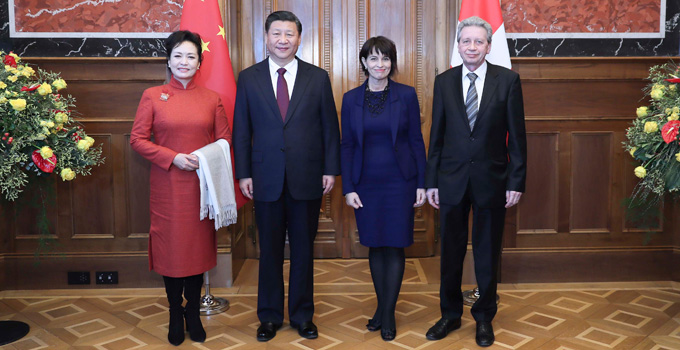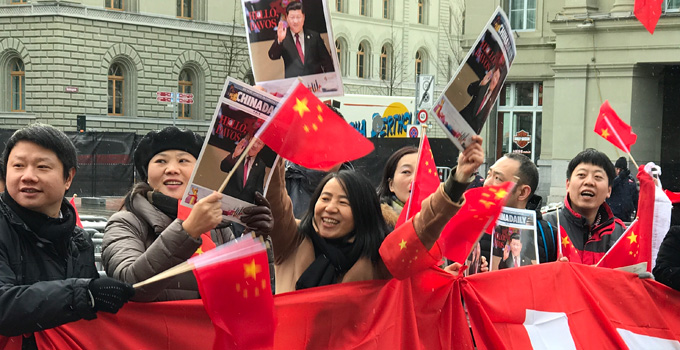South Korea pensioner woes signal China may face hurdles
Seoul, South Korea resident Cho Yong-moon, 75, spends nine hours a day, five days a week using his free pass on the city subway to shuttle parcels back and forth between clothing and jewelry stores.
With pension payments falling short of living costs for many of the elderly, he's among a growing number of senior citizens seen trekking in and out of metro stations in the South Korean capital carrying boxes for "silver service" courier businesses.
"This job isn't easy, especially when I'm walking up the subway stairs carrying heavy stuff," said Cho, who earns about 500,000 won ($430) a month, which is about half of what he and his wife need to live on. "There are limited seats for the elderly in the Seoul subways and I often have to stand for hours."
South Korea's national pension wasn't established until 1988 and Cho only contributed enough into the system to now get 600,000 won per month. His predicament underscores the demographic challenges faced by the nation as the economic growth rate declines and the society ages.
It's also a lesson for other countries, including its bigger neighbor China, where pension offerings vary greatly among industries and many of provincial funds are currently in deficit.
"The challenges are magnified for north Asia due to the sheer speed and scale of the demographic change sweeping across the region," said Donghyun Park, principal economist at the Asia Development Bank in Manila. "The demographic bonus which contributed substantially to the region's growth in the past has already turned into a demographic tax."
Park sees rising poverty among the elderly as potentially the biggest socio-economic risk to the region.
Because seniority and pay at South Korean companies are typically based on age, many workers get pushed out in their mid-to-late 50s before they have saved enough to retire. Multi-generational families in which the elderly live with their children and grandchildren are also in decline, leaving millions of seniors without an adequate safety net.
South Korea has the worst elderly poverty rate of any country in the Organization for Economic Cooperation and Development. The OECD estimated that true age at which South Koreans withdraw from the labor force was 73 for men and 71 for women in 2014.
"Companies need to change their culture of raising compensation based on seniority, which is one reason why they are reluctant to hold on to elderly workers," said Shin Kwan-ho, a professor of economics at Korea University in Seoul. "The elderly are healthier now and seniors can also help make up for the decline in the young working-age population."
Yet job options for the seniors trying to start over in the job market are limited, and some are pushed from the top of the wage scale to the bottom. Free travel on the metro, an entitlement for people who are 65 and over, is a key edge for many in the employment market.
The Seoul metropolitan government's Golden Job center, which helps the elderly brush up on their skills, focuses training for roles such as couriers, parking lot attendants, apartment janitors and librarians.
H.M. Cho, a 63-year-old who worked for 25 years at some of South Korea's biggest conglomerates, was among those taking courses at Golden Job earlier this month. He's looking to broaden his skills in case he loses the job he got as an intern at a small machinery supplier.
Cho said he got the intern position after offering to work for 25 percent less than the 2 million won monthly salary advertised by the company.
About 44 percent of people aged 55-79 are recipients of public or private pensions, according to the statistics office. The average monthly payment is 510,000 won, with some people who contributed into private schemes receiving a lot more while about half of recipients getting less than 250,000 won, government data show.
Silver services have also popped up across Japan, where about a third of the population is over 60 and the government is gradually raising the age for eligibility for pensions to 65. Some of the elderly in Japan also keep working out of necessity, but the poverty rate for seniors is far lower than in South Korea, and many work part time to supplement pensions or simply to keep active.
About 19 percent of China's population will be over 60 by 2020, and almost 39 percent by 2050, Human Resources and Social Security Minister Yin Weimin said last year. While China has some time to prepare, there is much to be done.
A survey of middle-in-come households in South Korea found that most estimate their living costs after retirement will be more than double what they expect to receive from the national pension. The survey last month by NH Investment & Securities Co, which polled 1,025 households, found that 96 percent of respondents intend to continue working after official retirement to supplement public and private pension income.
That means a future with a lot more seniors shuffling through Seoul's subways carrying packages for silver services.
Cho Won-dae, a 84, who's been at it for a decade, said his advice to others is: "Forget about what your past job was. It's better to make some money, no matter how little."
Bloomberg






















